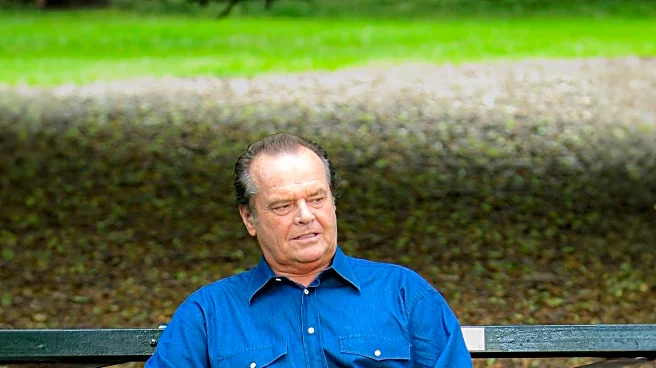What is the story about?
What's Happening?
Bill Plaschke, a renowned columnist for the Los Angeles Times and a familiar face on ESPN's 'Around the Horn,' has publicly disclosed his diagnosis of Parkinson's disease. In a heartfelt column, Plaschke shared his journey with the neurodegenerative disorder, which he was diagnosed with four years ago. Despite not exhibiting the typical tremors associated with Parkinson's, Plaschke experiences significant challenges, including difficulty in movement and facial expressions. He has kept his condition private until now, only sharing it with his family. Plaschke's revelation comes as he participates in a boxing program aimed at slowing the disease's progression, highlighting his determination to manage the condition actively.
Why It's Important?
Plaschke's announcement sheds light on the personal struggles faced by individuals with Parkinson's disease, a condition that affects millions worldwide. His openness may inspire others dealing with similar health issues to seek support and treatment. As a prominent figure in sports journalism, Plaschke's story underscores the importance of awareness and advocacy for neurodegenerative diseases. It also highlights the role of alternative therapies, such as boxing, in managing symptoms and improving quality of life for those affected. His experience may encourage further research and development of supportive programs for Parkinson's patients.
What's Next?
Plaschke's continued involvement in the boxing program suggests a proactive approach to managing his condition. His public disclosure may lead to increased dialogue and support for Parkinson's research and patient care. As he navigates his diagnosis, Plaschke's story could prompt discussions within the sports community about health challenges faced by journalists and athletes alike. The impact of his revelation may extend to encouraging others in similar positions to share their experiences, fostering a community of support and understanding.
Beyond the Headlines
Plaschke's diagnosis brings attention to the broader implications of living with Parkinson's disease, including the emotional and psychological challenges. His candidness about the difficulties in maintaining personal relationships and professional responsibilities highlights the need for comprehensive support systems for those affected. The story also touches on the cultural significance of public figures sharing their health struggles, potentially reducing stigma and promoting empathy and awareness.

















